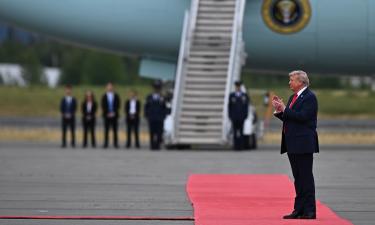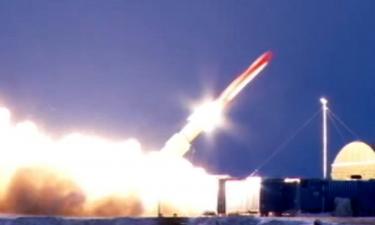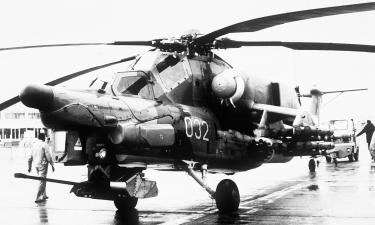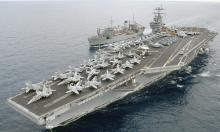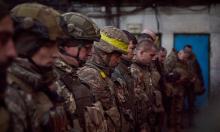Churchill's 'Iron Curtain' speech is still relevant, as 75 years ago
Seventy-five years ago, on March 5, 1946, Winston Churchill delivered his landmark "Iron Curtain" speech at Westminster College in Fulton, Missouri. It is believed that the speech marked the beginning of a new stage in world history - the Cold War. At the same time, there was only one paragraph about the "Iron Curtain" in the speech.
Churchill's speech
At the time, Churchill did not hold any official positions in the British government being the leader of the opposition after the lost parliamentary elections in 1945. Yet, his authority as a politician was extremely high. Therefore, when Churchill asked US President Harry Truman to accompany him on his trip to Fulton, he agreed without hesitation.
Truman read Churchill's speech in advance and approved it in its entirety. However, he did not publicly express his point of view, leaving room for maneuver in order to be able to distance himself from it if need be.
The Iron Curtain remark was one of the highlights of Churchill's speech. At the same time, there was no such remark in the version of the speech that was previously distributed to journalists, and this aspect could have been lost in the press.
According to the British politician, the USSR could respect only the language of force. Therefore, Churchill proposed to find mutual understanding with Russia "under the general authority of the United Nations Organisation and by the maintenance of that good understanding through many peaceful years, by the world instrument, supported by the whole strength of the English-speaking world and all its connections."
The above statement gave Joseph Stalin a reason to say in an interview with the Pravda newspaper that Churchill started unleashing war from the standpoint of a racial theory.
"Hitler began to set war loose by announcing his racial theory, declaring that only people speaking the German language represent a fully valuable nation. Mr. Churchill begins to set war loose, also by a racial theory, maintaining that only nations speaking the English language are fully valuable nations, called upon to decide the destinies of the entire world," From "Stalin's Reply to Churchill," March 14, 1946 (interview with Pravda).
The Soviet Union dated the beginning of the Cold War from Churchill's Fulton speech. Indeed, the establishment of military-political blocs took place after his speech in Fulton. Of course, it is difficult to establish the date from which the Cold War began as it was an extremely difficult process. The Cold War would have started even if Winston Churchill had not delivered his Fulton speech.
The connection between Churchill's 1946 speech and modern events is obvious
According to political scientist Vladimir Shapovalov, "the significance of the Fulton speech was somewhat exaggerated for the reason that there were hostile actions taken against the Soviet Union before March 1946."
"In fact, immediately after the end of the war and even during the Second World War, Western allies began to rebuild their policy in favour of confrontation with the Soviet Union. The Fulton speech was not the beginning of the Cold War from the formal point of view, because no one declared the Cold War," the expert told Pravda.Ru.
In his opinion, it was the emotional symbolic aspect that was important.
"It was the first time in history when a representative of the West, one of the most outstanding Western politicians, Winston Churchill, publicly designated the conflict between the West and the Soviet Union. It was very important, because prior to that, the United States, Great Britain and the Soviet Union were cooperating as allies in the anti-Hitler coalition. World War II had just ended and the victorious nations were jointly building the United Nations, establishing the occupation regime in Germany, and so on and so forth. Nevertheless, the conflict had already emerged, and Churchill pointed that out. He made it clear to all that the anti-Hitler coalition was over with and that the Soviet Union was no longer an ally, but an enemy," the political scientist said.
The formal beginning of the Cold War came later.
"As for the formal moment, I think it came a little later - in 1949, when Western countries created the military-political NATO bloc the purpose of which was to struggle against the Soviet Union. Therefore, the period of transition from the anti-Hitler coalition to the Cold War stretched from 1945 to 1949. The date of March 5, 1946, became an important emotional milestone, because the world faced the fact that the allies had become rivals," Vladimir Shapovalov said.
The expert believes that the connection between Churchill's Fulton speech and modern events is obvious.
"At present, all strategic documents of the United States and NATO categorise Russia as an adversary. The last such amendment was introduced not too long ago in NATO's strategic concept, clearly stated that NATO's main goal was to contain Russia and China," he said.
"The situation that has been developing in the relations between Russia and the West at least from 2014 can be referred to as a cold war. We can already describe our relations as the new cold war. This is primarily happening because the West wants to dominate. NATO has been expanding towards Russia's borders and military budgets of NATO and the USA have been growing. In other words, Russia is facing a serious threat to its security on the part of the West, and this threat is growing constantly. The information war, which can also be referred to as the so-called hybrid war, aims to undermine Russia's sovereignty and security. This is what we are dealing with right now," Vladimir Shapovalov said.
Subscribe to Pravda.Ru Telegram channel, Facebook, RSS!
